| Category | Dissertation | Subject | Management |
|---|---|---|---|
| University | University of Wales | Module Title | BMBM6015 Strategic Management and Sustainability |
| Assessment Title | Module Handbook |
|---|---|
| Academic Year | 2025 |
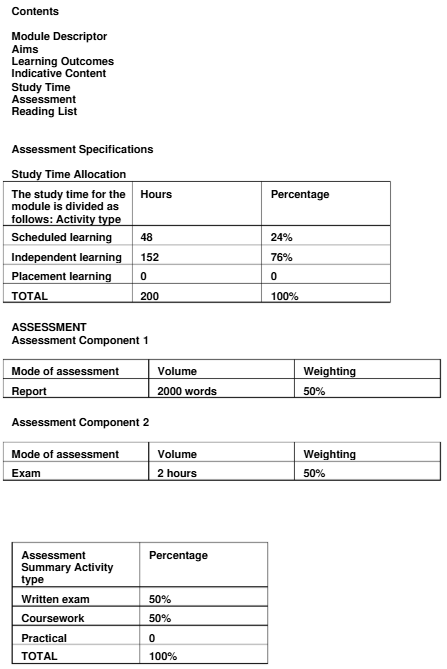
To provide students with an opportunity to identify, discuss and analyse external and internal economic forces and assess their impact on strategic decision-making processes in organisations across various industries, and enable students to critically investigate modern organisations based on different strategic models, including strategy formulation and implementation within the boundaries of sustainable requirements.
Upon the successful completion of this module, the student should be able to:
apply relevant strategic and economic models to assess the impact of current economic conditions on their strategies;
analyse the major forces shaping the current business environment and critically assess their impact on the development of corporate and business-level strategy:
assess markets in action based on microeconomic and macroeconomic foundations, including different market structures and their influence on firm strategy.
Fundamental microeconomic concepts such as supply and demand, elasticities and cost structures.
Essential macroeconomic theory and the discussion of various economic performance indicators.
Different market structures, such as monopoly, oligopoly, perfect competition, monopolistic competition and their impact on strategy development.
The strategy process - the nature of Strategic Management and Sustainability, the strategy process, the strategic context, and the role of the management structure. Organisational Vision, Mission, aims and objectives.
Diagnosing and analysing strategic capability - using models such as Porter's Five Forces, PESTEL etc, to analyse multiple markets, industries and environments.
Internal environmental analysis, resources and capabilities; the resource-based view of the firm - The analysis of the environment and strategy issues in key regions of the world - The situational analysis (the SWOT vs. TOWS matrices).
Basic Strategic Management and Sustainability tools relevant for an internal analysis of organisations, such as Porter's Generic Strategies, the Boston Consulting Group Matrix, Value Chain.
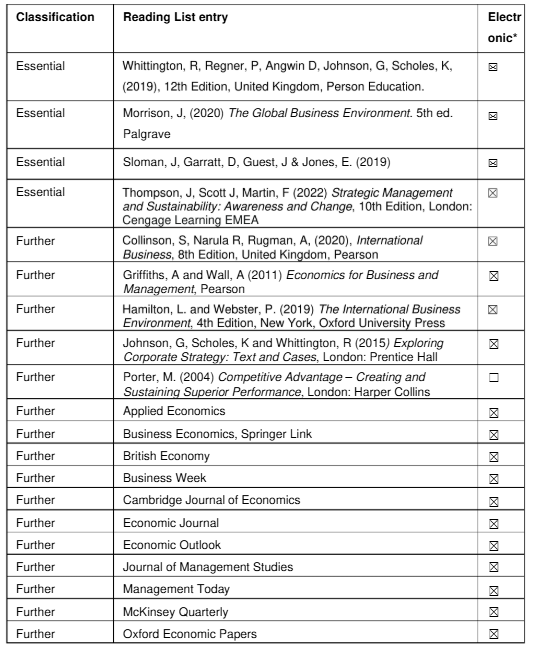

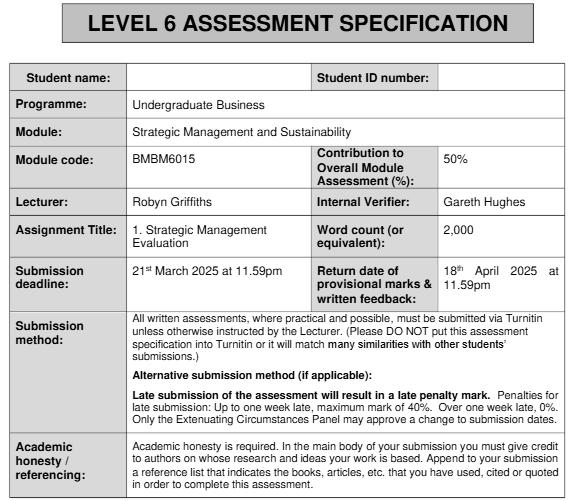
Achieve Higher Grades with BMBM6015 Dissertation Solutions
Order Non-Plagiarised Dissertation(from module syllabus)
Upon successful completion of this module, the student should be able to:
You are required to critically analyse the strategic position of an organisation or industry, assess the economic and competitive environment in which it operates, and develop strategic recommendations within the boundaries of sustainability.
Students are required to write a structured business report covering the following sections
1. Introduction (300 words)
2. External Analysis (600 words)
3. Internal Analysis (500 words)
4. Strategy Formulation & Competitive Positioning (400 words)
5. Sustainability & Strategic Recommendations (400 words)
6. Conclusion (200 words)
You should choose an organisation or industry you are passionate about or have a connection with. However, if you do not have a specific preference, you are encouraged to look at selecting from the following suggested industries/companies:
1. Renewable Energy & Sustainability
2. Automotive & Mobility Innovations
3. Fast-Moving Consumer Goods (FMCG) & Sustainable Packaging
4. Technology & Al Innovation
5. Pharmaceuticals & Global Healthcare Strategy
NOTE: The guidance offered below is linked to the five generic assessment criteria overleaf.
Your work must be informed and supported by scholarly material that is relevant to and focused on the task(s) set; you should make use of scholarly reviews and primary sources, where appropriate (for example, refereed research articles and/or original materials appropriate to the discipline). You should provide evidence that you have accessed a wide range of sources, which may be academic, governmental and industrial; these sources may include academic journal articles, textbooks, current news articles, organisational documents, and websites. You should consider the credibility of your sources; academic journals are normally highly credible sources, while websites require careful consideration/selection and should be used sparingly. Any sources you use should be current and up-to-date, mostly published within the last five years or so, though seminal/important works in the field may be older. You must provide evidence of your research/own reading throughout your work, using a suitable referencing system, including in-text citations in the main body of your work and a reference list at the end of your work.
Guidance specific to this assessment: You should demonstrate extensive reading (20-25 references) from diverse sources, including textbooks, academic journals, and reputable industry reports. Given the focus on strategy and sustainability, incorporating real-world business reports, market analysis, and sustainability frameworks is encouraged. Ensure sources are credible and up-to-date, with proper in-text citations and a reference list in an appropriate academic format.
At level 6, you should be able to demonstrate coherent and detailed knowledge and a systematic understanding of the subject area, at least some of which is informed by the latest research and/or advanced scholarship within the discipline. You should be aware of the uncertainty, ambiguity and limits of knowledge. Your work must demonstrate the growing extent of your knowledge and systematic understanding of concepts and underlying principles associated with the subject area. Knowledge relates to the facts, information and skills you have acquired through your learning. You demonstrate your understanding by interpreting the meaning of the facts and information (knowledge). This means that you need to select and include in your work the concepts, techniques, models, theories, etc., appropriate to the task(s) set. You should be able to explain the theories, concepts, etc., meaningfully to show your understanding. Your mark/grade will also depend upon the extent to which you demonstrate your knowledge and understanding; ideally, each should be complete and detailed, with comprehensive coverage.
Guidance specific to this assessment: Select and apply relevant strategic and economic models. Your focus should be on application and analysis, rather than simply explaining the models. Demonstrate an understanding of how these models shape business strategy and sustainability within your chosen organisation or industry.
You should be able to: critically evaluate evidence, arguments, assumptions, abstract concepts and data some of which are at the forefront of a discipline (and that may be incomplete) to devise and sustain arguments, to make judgements and/or solve problems; describe and comment upon particular aspects of current research, or equivalent advanced scholarship, in the discipline Your work must contain evidence of logical, analytical thinking,
evaluation and synthesis. For example, to examine and break information down into parts, make inferences, compile, compare and contrast information. This means not just describing what! But also justifying: Why? How? When? Who? Where? At what cost? At all times, you must justify your arguments and judgments. Evidence that you have reflected upon the ideas of others within the subject area is crucial to you providing a reasoned and informed debate within your work. Furthermore, you should provide evidence that you can make sound judgments and convincing arguments using data and concepts. Sound, valid conclusions are necessary and must be derived from the content of your work. Where relevant, alternative solutions and recommendations may be proposed.
Guidance specific to this assessment: Your analysis should go beyond description- critically assess why and how specific strategies are chosen, evaluating their impact, advantages, and limitations, using models that ensure both comparative and contrasting narratives are established. Use real-world data to support arguments, explore alternative strategic directions, and propose 3-4 practical recommendations for sustainable competitive advantage.
At level 6, you should be able to apply the methods and techniques that you have learned to review, consolidate, extend and apply your knowledge and understanding, and to initiate and carry out projects. You will deploy accurately established techniques of analysis and enquiry relevant to the discipline, and apply them in complex and unpredictable contexts, to devise and sustain arguments and/or to solve problems. You should be able to frame appropriate questions to achieve a solution or identify a range of solutions. You should be able to demonstrate how the subject-related concepts and ideas relate to real-world situations and/or a particular context. How do they work in practice? You will deploy models, methods, techniques, and/or theories, in that context or circumstances, to assess current situations, perhaps to formulate plans or solutions to solve problems, or to create artefacts, some of which may be innovative and creative. This is likely to involve, for instance, the use of real-world artefacts, examples and cases, the application of a model within an organisation and/or benchmarking one theory or organisation against others based on stated criteria. You should show awareness of the limitations of concepts and theories when applied in particular contexts.
Guidance specific to this assessment: Apply the chosen models to real-world organisational strategy, using case-specific data and examples. Consider the limitations of these models in today's business environment and sustainability challenges. Where possible, benchmark the selected organisation against industry trends and competitors.
Your work must provide evidence of the qualities and transferable skills necessary for graduate-level employment, requiring the exercise of initiative and personal responsibility and decision-making in complex and unpredictable circumstances. This includes demonstrating: the learning ability for professional development to advance existing skills and acquire new competences of a professional nature that will enable you to assume significant responsibility within organisations; that you can initiate and complete tasks and procedures, whether individually and/or collaboratively; that you can use appropriate media to effectively communicate information, arguments and analysis in a variety of forms to specialist and non- specialist audiences; fluency of expression; clarity and effectiveness in presentation and organisation. Work should be coherent and well-structured in presentation and organisation.
Guidance specific to this assessment: Your report should follow a structured, professional format, including an executive summary, introduction, findings, conclusions, and recommendations. Use formal, concise, and academic writing. All figures, charts, and data must be referenced and incorporated within the text, ensuring readability and clarity.
By the Framework for Higher Education Qualifications, at the end of Level 6, students should have coherent and detailed knowledge and a systematic understanding of their subject area, at least some of which is informed by the latest research and/or advanced scholarship within the discipline. They will be able to accurately deploy established techniques of analysis and enquiry within a discipline, using their conceptual understanding to devise and sustain arguments and/or to solve problems. They should be aware of the uncertainty, ambiguity and limits of knowledge. They should be able to critically evaluate evidence, arguments, assumptions, abstract concepts and data (that may be incomplete), to make judgements, and to frame appropriate questions to achieve a solution, or identify a range of solutions. They will apply the methods and techniques that they have learned to review, consolidate, extend and apply their knowledge and understanding, and to initiate and carry out projects. They will have the ability to manage their learning, and to make use of scholarly reviews and primary sources (for example, refereed research articles and/or original materials appropriate to the discipline). They will demonstrate the qualities and transferable skills necessary for employment requiring: the exercise of initiative and personal responsibility; decision-making in complex and unpredictable contexts; the learning ability needed to undertake appropriate further training of a professional or equivalent nature.
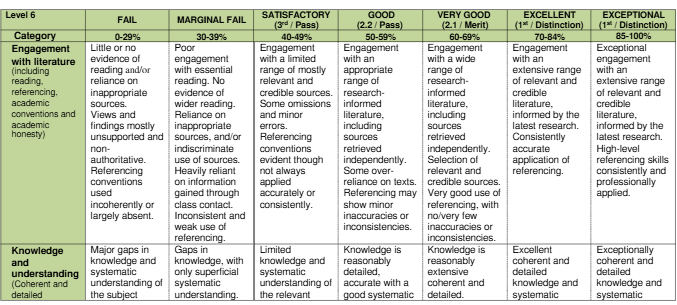
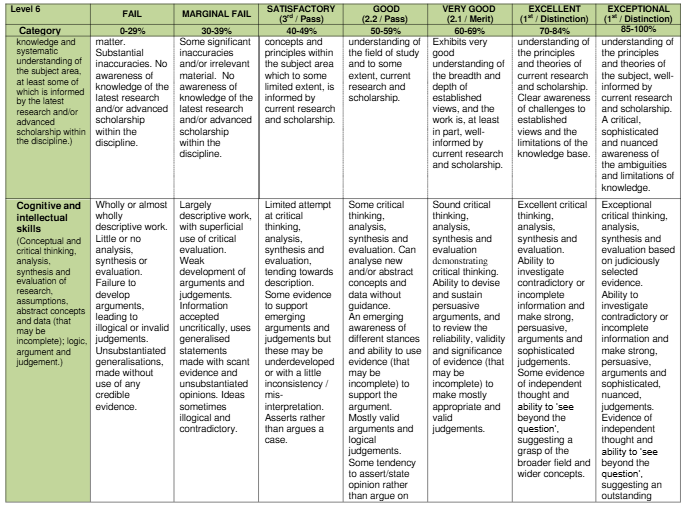
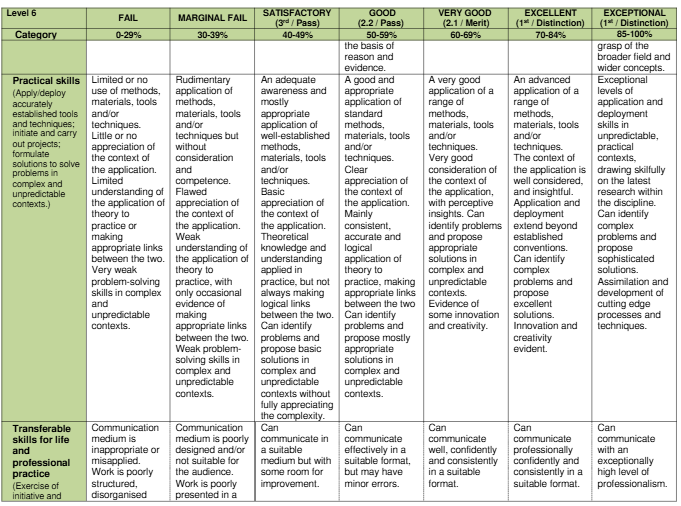
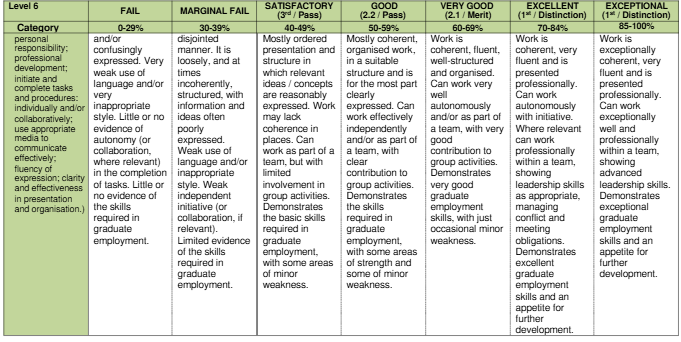
Take our academic assistance & get 100% plagiarism-free papers
Buy Today, Contact UsAre you trying to find someone who can help with my BMBM6015 Strategic Management and Sustainability? Well! You're in the right place, our podium. Workingment provides Strategic Assignment Help. Our well-researched and talented professors can also provide you with odd assignments. Suppose you're judging whether to Write My Assignment with our professors. No doubt! Our team can help with your assignment. We also provide a Free Sample dissertation for your guidance. Get in touch right now!
Hire Assignment Helper Today!
Let's Book Your Work with Our Expert and Get High-Quality Content
